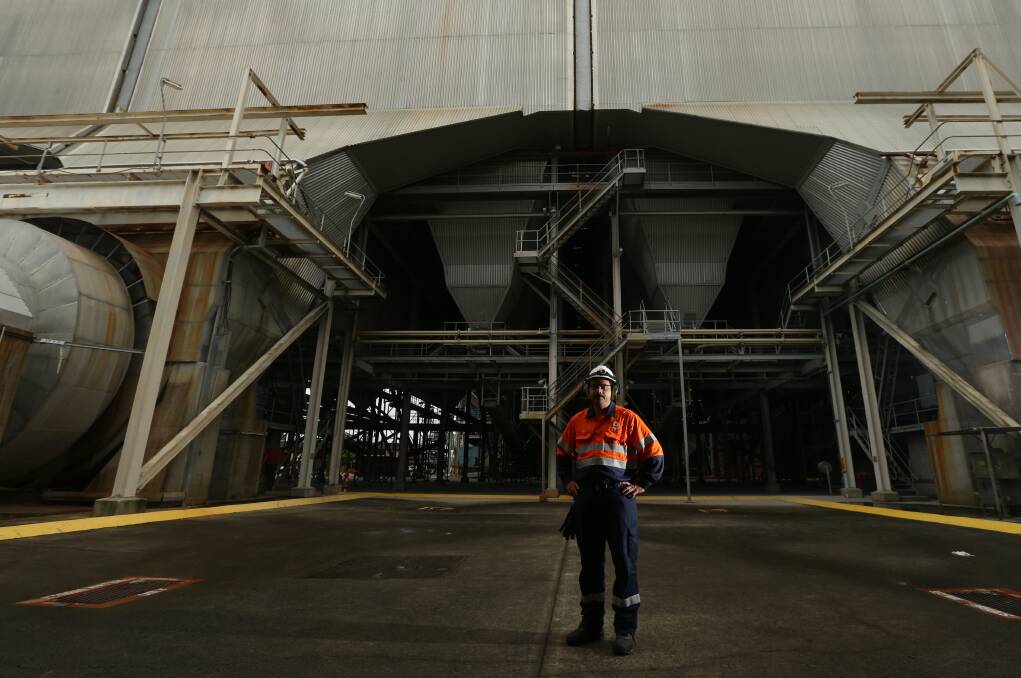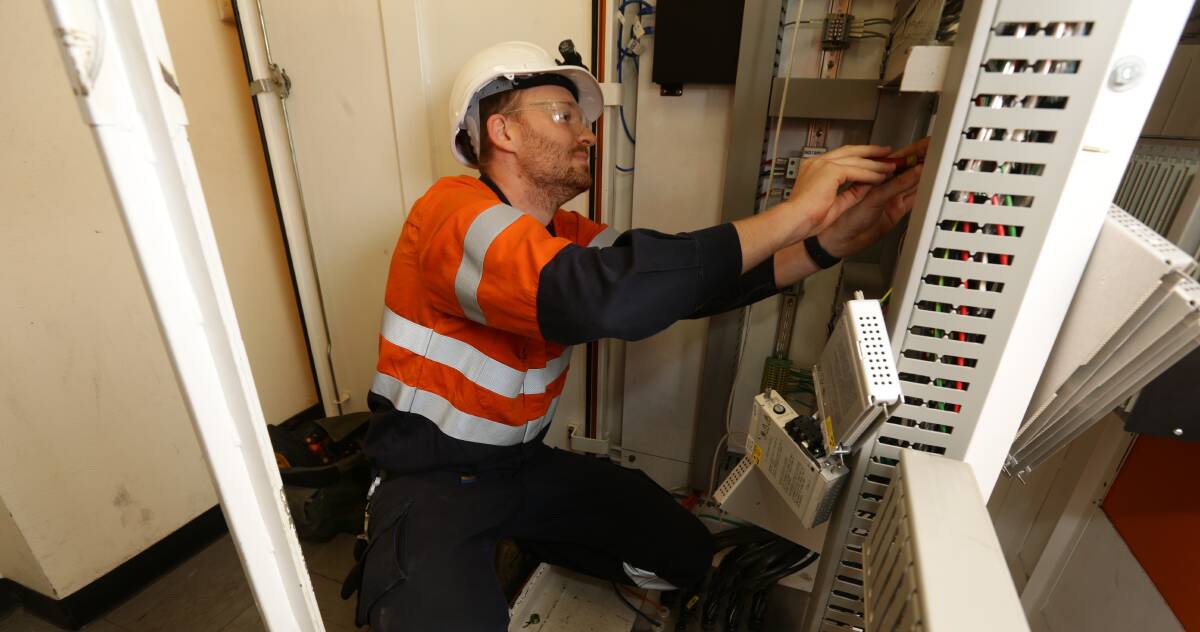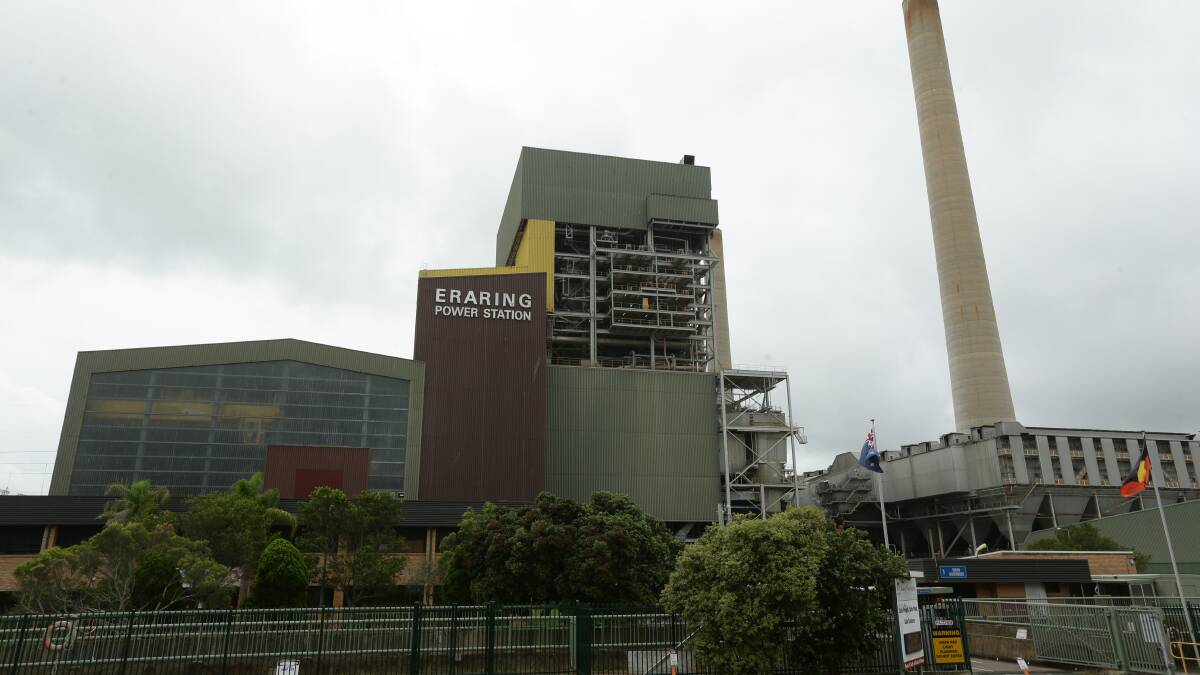As websites lit up with the news that the country's largest coal-fired power plant would close seven years early due to the rise of renewable energy, Basil Paynter's thoughts turned to how he would support his family.
Subscribe now for unlimited access.
or signup to continue reading
Like most of Eraring's 400 employees, Mr Paynter had been counting on having stable employment until 2032.
That all changed last Thursday when workers were given two hours notice of a meeting to coincide with Origin Energy's half yearly results.
Some suspected the plant's closure might be brought forward by a couple of years, but none anticipated the magnitude of what they were about to be told.
"We were blindsided," Mr Paynter, a trainee assistant power plant operator, said.

"Basically fear set in. I have a wife and two children in high school. The first thing I thought was how am I going to provide for my family."
Positioned on the southern shore of Lake Macquarie, the 2880 megawatt plant has provided about 25 per cent of the state's energy needs since the early 1980s.
An army of highly skilled men and women keep the finely tuned powerhouse running day and night.
From a technical perspective it has many years of life left in it, the only problem is coal-fired electricity is quickly becoming a commercially unviable commodity.
"The problem for me is I love my job, power station technician Pete Granger, who began his career as an apprentice at Eraring in 2010, said.
"I come to work and no day is the same. The mix I get from working out on the plant and working on mechanical equipment and the instrumentation control side doing all the automation and programming in the background will be hard to get somewhere else."
A week on from the shock announcement and most workers are still coming to grips with what it means for their lives and careers.
"I'm at the stage now of heightened awareness. Anything that mentions coal or a power station is triggering an emotional reaction within me. The fear factor is something that I have to manage," Mr Paynter said.
Mr Granger said he and his colleagues were supporting each other as they contemplated their futures.
"We talk about it a lot but it still hasn't sunk in properly," he said.

"Personally, I'm nervous and unsure of the future but I'm trying to be optimistic.
"I can relocate if I need to but a lot of my colleagues are established here. I feel for them because a few of them are struggling."
The rise of climate change as a mainstream concern over the past 20 years has mirrored an increased awareness about energy transition.
As with their colleagues in the mining industry, most in the power generation sector are supportive of transitioning to clean energy.
But, like many in the community, they ask where is the strategy or plan to manage the changes that are directly impacting their lives and the communities that they live in.
In addition to the 400 people employed at Eraring power station, an estimated 2000 people in the wider community are indirectly employed by it's operation
"From a moral perspective, we have to change and we have to move to renewable energy. We absolutely need to draw a line in the sand and say this is when we close our coal-fired power stations down," Mr Paynter said.
"All I'm asking for [advice about] when that date is going to happen. You cannot have the Federal Government saying we are going to have higher energy prices because Eraring is going to shut down but the NSW Energy Minister saying there is $100 million in the pipeline for renewable energy."
In addition to the stress that workers at Eraring are experiencing, employees at AGL's Hunter Valley coal-fired power stations are also wondering how long their jobs will last following the news that Canada's Brookfield Asset Management and Atlassian co-founder Mike Cannon-Brookes had launched a bid to buy the company with the intention of accelerating the closure of its coal-fired power plants.
"Whilst we are in the hot seat at the moment, AGL and Vales Point are not far behind. I'm sure those workers are wondering when are they going to get called to a meeting to be told they have 3.5 years left," Mr Paynter said.
Mr Granger echoed the concerns of many who are sceptical of the capacity of clean energy technologies to support the same number of jobs as traditional fossil fuel industries.
"The renewable stuff is great, but my concern is after it has been built the new technology is far less maintenance dependent," he said.
"We have got 400 people here to work to maintain an asset. Will there be 400 jobs with those qualifications in the future? I don't think so.

"Newcastle is built on all of these engineering and engineering services that support the coal and coal generation industries that provide services to places like this. It's not just going to be 400 people from here that are looking for a job. It's going to be all those businesses that do work for this place."
As for the future, some Eraring workers are contemplating early retirement, others retraining in different fields, while others are taking their time to decide.
Mr Paynter, who has worked in the power generation industry for 12 years, said he was interested in moving into the mental health sector.
"From my perspective, I have a mortgage and a family but I'm also focused on trying to help as many people as possible in the long term," he said.
Mr Granger said he was keen to explore options that would allow him to continue working in heavy industry.
"My job involves instrumentation control. I can go into a few other industries but essentially heavy industry is where my passion is. If it [another job] came up in power generation I'd be happy to stay because it is heavy industry."
He urged Origin to continue to support its workers as they made decisions about their futures in coming months and years.
"It's early days but they have said they will support us," he said.
"There's employment here for three more years but there's also the balance of going to the end and competing with other people if something does comes up now"
An Origin spokesman confirmed the company was committed to providing tailored support packages for each employee.
"Origin is committed to funding and supporting employees at the Eraring Power Station during the notice period for any potential closure. We will engage in open and transparent consultation with employees and their union representatives and we will take into account individual employee circumstances," the spokesman said.
"Each employee will meet with a Career Transition Advisor, who will explore options for them post any closure. This will enable Origin to provide a tailored support package for each employee."
This report appears as part of the Newcastle Herald's 'Power and the Passion' special report investigating the Hunter's energy transition away from coal-fired power to renewable energy alternatives. Read the full series here, and listen to the Voice of Real Australia podcast, on Apple Podcasts, Spotify or your preferred platform
Our journalists work hard to provide local, up-to-date news to the community. This is how you can continue to access our trusted content:
- Bookmark: newcastleherald.com.au
- Download our app
- Make sure you are signed up for our breaking and regular headlines newsletters
- Follow us on Twitter
- Follow us on Instagram
- Follow us on Google News


